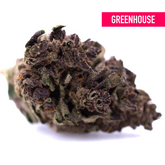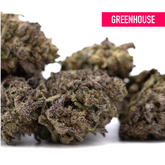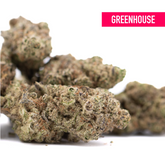What is THCA? A Deep Dive into Tetrahydrocannabinolic Acid
What is THCA? A Deep Dive into Tetrahydrocannabinolic Acid
Cannabinoids are the naturally occurring compounds found in cannabis plants that have sparked curiosity, research, and debate for decades. Among the numerous cannabinoids, THC (Tetrahydrocannabinol) is the most well-known for its psychoactive effects, producing the "high" often associated with cannabis use. However, there is another crucial cannabinoid that serves as the chemical precursor to THC, and that is THCA (Tetrahydrocannabinolic Acid).
THCA, unlike THC, does not induce any psychoactive effects in its raw form and is gaining increasing attention for its therapeutic potential. Found in the raw, unprocessed cannabis plant, THCA is a non-psychoactive compound that holds various potential health benefits, many of which are only now being explored through research.
In this comprehensive guide, we will explore the science behind THCA, how it differs from THC, how it works within the body, its therapeutic potential, how to consume it, and its future in cannabis-based therapies.
Introduction to THCA
THCA (Tetrahydrocannabinolic Acid) is one of the primary cannabinoids found in raw cannabis plants. It is a non-psychoactive compound that exists in the trichomes (the resin glands) of cannabis and is the acidic precursor to THC.
In its natural form, THCA does not cause any psychoactive effects. This is because it needs to undergo a process called decarboxylation—a chemical reaction induced by heat that removes a carboxyl group from its molecular structure—turning it into the psychoactive THC. This means that in its unheated state, THCA will not make users feel "high." This property has made THCA an attractive compound for users who are seeking the therapeutic effects of cannabis without the intoxicating effects associated with THC.
Over the past few years, scientific interest in THCA has been steadily growing. Researchers are uncovering various potential therapeutic uses of THCA, ranging from anti-inflammatory properties to neuroprotective benefits.
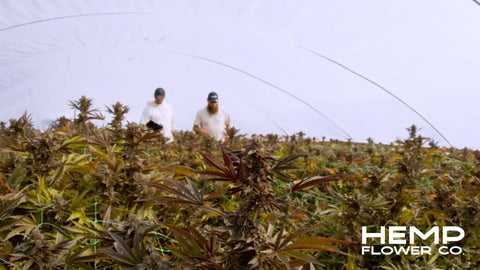
What is THCA?
THCA is one of the hundreds of cannabinoids produced by the cannabis plant. Unlike THC, which is primarily known for its psychoactive properties, THCA is a non-psychoactive compound that is produced when the cannabis plant grows in its raw, unprocessed state.
In the cannabis plant, THCA starts as cannabigerolic acid (CBGA)—often referred to as the "mother of all cannabinoids." CBGA is a precursor to three major cannabinoids: THCA, CBDA (cannabidiolic acid), and CBCA (cannabichromenic acid). As the plant matures, enzymes in the plant convert CBGA into one of these three cannabinoid acids, depending on the plant's genetics and environmental factors. In strains that are bred for high THC content, most of the CBGA will eventually be converted into THCA.
THCA can be considered the "raw" version of THC. It only transforms into THC when it is exposed to heat through smoking, vaporizing, or cooking, which breaks down the THCA molecule in a process called decarboxylation. Until then, THCA remains a separate and distinct cannabinoid with its own unique properties and potential health benefits.
Where THCA is Found in Cannabis
THCA is predominantly found in the resinous glands or trichomes of cannabis plants. These tiny, hair-like structures are located on the surface of the cannabis flower and produce a sticky resin that contains a high concentration of cannabinoids, terpenes, and flavonoids.
The concentration of THCA in cannabis depends on several factors, including the strain, growing conditions, and the plant's maturity at the time of harvest. Strains that are bred for high THC content will naturally have high THCA levels in their raw, unprocessed state. The highest levels of THCA can be found in fresh, uncured cannabis.
THCA Concentration in Cannabis:
- Raw, freshly harvested cannabis plants have high levels of THCA.
- After harvesting, drying, and curing the cannabis, some THCA will convert to THC naturally over time.
- Heat application during smoking, vaporizing, or cooking will rapidly convert the remaining THCA into THC.
How THCA Works in the Body
To understand how THCA works in the body, it is essential to first understand the endocannabinoid system (ECS). The ECS is a complex cell-signaling system that regulates a wide array of physiological processes, including mood, sleep, appetite, immune function, and pain sensation.
The ECS is made up of two primary receptors:
- CB1 receptors, which are primarily found in the brain and central nervous system.
- CB2 receptors, which are mostly located in the peripheral organs, immune cells, and the gastrointestinal system.
THCA does not bind directly to CB1 receptors, unlike THC, which is why it does not cause psychoactive effects. Instead, THCA interacts with the ECS in a more indirect way. Research suggests that THCA may influence certain enzymes and modulate various signaling pathways within the ECS, contributing to its anti-inflammatory, neuroprotective, and immune-boosting effects.
Non-Psychoactive Nature of THCA
THCA is non-psychoactive in its raw form. This is because it does not interact with the CB1 receptors in the brain, which are responsible for the intoxicating effects of THC. The reason for this is its molecular structure—specifically, the presence of a carboxyl group (COOH) attached to the THCA molecule. This extra molecular group prevents THCA from fitting into the CB1 receptors, which means it cannot produce the "high" commonly associated with cannabis use.
However, once THCA is decarboxylated through heat, it loses this carboxyl group and is converted into THC, which can bind to the CB1 receptors and produce psychoactive effects. This explains why raw cannabis, which contains THCA, will not get someone "high" unless it is heated through smoking, vaporizing, or cooking.
Many consumers who want to enjoy the medicinal benefits of cannabis without the psychoactive effects of THC prefer consuming raw cannabis or THCA-specific products.
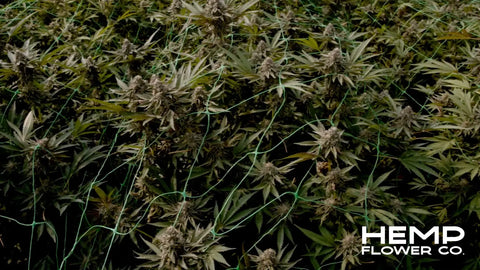
Decarboxylation: Turning THCA into THC
Decarboxylation is the chemical process that converts THCA into THC, making it psychoactive. This process occurs when cannabis is exposed to heat, whether through smoking, vaporizing, or cooking.
At a molecular level, THCA contains a carboxyl group (COOH) that prevents it from binding to the CB1 receptors in the brain. When cannabis is heated to a certain temperature, this carboxyl group is removed, converting THCA into THC, which then fits into the CB1 receptors and produces psychoactive effects.
Decarboxylation Process:
- Heat (approximately 220°F to 250°F) is applied to cannabis.
- The carboxyl group (COOH) is removed from the THCA molecule.
- THCA is converted into THC, making it psychoactive.
For those who want to avoid the psychoactive effects of THC, it is important to consume cannabis products that have not been decarboxylated. Raw cannabis and THCA-specific products allow users to experience the therapeutic benefits of THCA without the mind-altering effects of THC.
Benefits of THCA
THCA is emerging as a potentially valuable therapeutic agent, with a wide range of potential health benefits. While research on THCA is still in its early stages, preliminary studies and anecdotal evidence suggest that THCA may have several medicinal properties that are distinct from THC.
1. Anti-Inflammatory Properties
One of the most well-researched benefits of THCA is its anti-inflammatory effects. Inflammation is a natural immune response, but chronic inflammation is linked to a variety of diseases, including arthritis, autoimmune disorders, and cardiovascular conditions.
Studies have shown that THCA can reduce inflammation by modulating the activity of certain enzymes and influencing immune responses. This makes THCA a promising candidate for conditions characterized by inflammation, such as arthritis, Crohn's disease, and inflammatory bowel disease (IBD).
2. Neuroprotective Effects
THCA has also shown neuroprotective properties, meaning it may help protect nerve cells (neurons) from damage. This could make THCA beneficial for individuals suffering from neurodegenerative diseases such as Alzheimer's disease, Parkinson's disease, and Huntington's disease.
Research suggests that THCA may reduce oxidative stress and inflammation in the brain, both of which are thought to contribute to the progression of neurodegenerative diseases. By reducing these harmful processes, THCA has the potential to slow the progression of these conditions.
3. Anti-Nausea and Appetite-Stimulation
THCA has been found to have anti-nausea and appetite-stimulating effects, similar to THC. This is particularly beneficial for individuals undergoing chemotherapy or those with eating disorders who need to maintain a healthy appetite.
However, the advantage of THCA over THC is that it can provide these benefits without the psychoactive effects, making it a more appealing option for patients who want to avoid feeling "high."
4. Pain Relief
Similar to THC, THCA has shown potential as a pain-relieving agent, particularly for individuals with chronic pain conditions such as fibromyalgia or multiple sclerosis. THCA’s ability to reduce inflammation and influence pain pathways in the body makes it a promising alternative for those seeking relief from pain without the psychoactive effects of THC.
5. Anti-Proliferative Effects
Early research suggests that THCA may have anti-proliferative properties, meaning it could inhibit the growth of cancer cells. While more studies are needed to fully understand how THCA might be used in cancer treatment, these findings are an exciting avenue for future research into cannabinoid-based therapies for cancer.
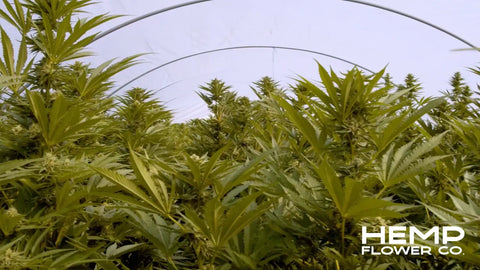
THCA and Medical Research
The medical community is only just beginning to explore the full therapeutic potential of THCA. Some of the key areas of ongoing research include:
-
Chronic Pain Management: Researchers are studying how THCA can help manage pain by reducing inflammation without the psychoactive effects of THC.
-
Neurodegenerative Diseases: Ongoing studies are investigating how THCA’s neuroprotective properties could help slow the progression of diseases like Alzheimer’s and Parkinson’s.
-
Autoimmune Disorders: THCA’s ability to modulate immune responses and reduce inflammation is being studied as a potential treatment for autoimmune diseases like lupus and rheumatoid arthritis.
-
Cancer Research: Some preliminary studies suggest that THCA may have anti-proliferative effects on cancer cells. While the research is still in its infancy, this is an exciting area of study that could lead to new cannabis-based treatments for cancer.
While research on THCA is still in its early stages, the existing studies are promising. As cannabis legalization expands globally and more research is conducted, we are likely to gain a deeper understanding of THCA’s full potential in medical and therapeutic applications.
THCA vs. THC: Understanding the Differences
The most significant difference between THCA and THC is their psychoactive properties. While THC is known for causing the intoxicating effects associated with cannabis consumption, THCA is non-psychoactive in its raw form. Here’s a deeper look at the distinctions:
Psychoactivity
THCA does not produce any psychoactive effects because it does not bind to the CB1 receptors in the brain. THC, on the other hand, binds directly to these receptors, which results in the euphoric and mind-altering effects commonly associated with cannabis.
Health Benefits Comparison
Both THCA and THC offer potential health benefits, but their mechanisms of action and therapeutic applications differ.
-
THCA: Known for its anti-inflammatory, neuroprotective, and anti-nausea properties, THCA is especially appealing to individuals who want to experience the medicinal benefits of cannabis without the psychoactive effects.
-
THC: In addition to its psychoactive effects, THC is known for its ability to relieve pain, reduce nausea, stimulate appetite, and act as a muscle relaxant. However, for some individuals, the intoxicating effects of THC can be undesirable or even lead to anxiety and paranoia.
Understanding the distinct properties of each compound allows consumers to make informed decisions based on their health goals and preferences.
Consumption Methods for THCA
Unlike THC, THCA needs to be consumed in ways that preserve its raw, non-psychoactive state. Here are some of the most common methods for consuming THCA:
1. Juicing Raw Cannabis
Juicing raw cannabis leaves and flowers is one of the most popular ways to consume THCA. By consuming the plant in its natural state, users can take advantage of the high levels of THCA without converting it to THC. Juicing cannabis also preserves the plant’s natural cannabinoid and terpene profile, offering a full-spectrum experience.
2. THCA Tinctures
THCA tinctures are liquid extracts made from raw cannabis that can be taken sublingually (under the tongue). This method allows for easy and precise dosing, and because the cannabis is not heated, the THCA remains intact without converting to THC.
3. THCA Capsules
For those who prefer a more controlled dosage, THCA capsules offer a convenient way to ingest the cannabinoid. These capsules typically contain raw, unheated cannabis extract that is rich in THCA.
4. Topicals
THCA can also be applied directly to the skin in the form of creams, balms, or patches. While topicals do not produce any psychoactive effects, they can provide localized relief for inflammation, pain, or skin conditions like eczema or psoriasis.
The Future of THCA in Cannabis Science
As interest in cannabis-based therapies continues to grow, researchers are likely to focus more on THCA’s unique properties and therapeutic potential. Current studies suggest that THCA could play a significant role in treating inflammation, neurodegenerative diseases, and other chronic conditions—without the psychoactive effects of THC.
With further research, THCA may also become a key ingredient in wellness products, such as dietary supplements, skincare products, and raw cannabis powders. For consumers who want to experience the health benefits of cannabis without the high, THCA-based products offer an attractive alternative.
Conclusion: Why THCA Deserves Attention
In conclusion, THCA is a fascinating and potentially powerful cannabinoid with a wide range of health benefits. From its anti-inflammatory and neuroprotective properties to its ability to modulate nausea and appetite, THCA represents a promising avenue for cannabis-based therapies. Unlike THC, it is non-psychoactive, making it an attractive option for those who want to experience the medicinal benefits of cannabis without the mind-altering effects.
As more research is conducted and the cannabis industry evolves, THCA is likely to play a larger role in both medical and wellness applications. Whether you're a seasoned cannabis user or new to the world of cannabinoids, THCA is a compound worth exploring for its unique properties and therapeutic potential.




